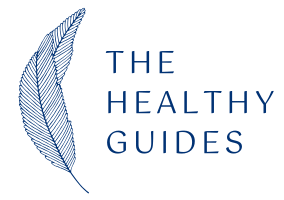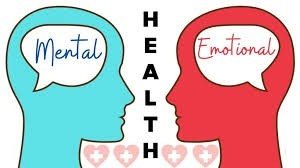Sleep Cycle Guide: The Complete Path to Better Sleep and Health
In today’s fast-paced world, many of us overlook the importance of the sleep cycle in our overall well-being. We often focus on diet and exercise, but getting quality sleep is just as critical to your health. This sleep cycle guide will provide you with an in-depth look at how understanding your sleep stages and optimizing your sleep time can lead to better physical, mental, and emotional health.
Understanding the Sleep Cycle: A Complete Sleep Cycle Guide
Every night, your body goes through multiple stages of sleep, each with its own set of vital functions. In this section, we’ll break down the sleep cycle and explain why it’s important to complete a full sleep cycle each night. Understanding the sleep cycle guide will help you optimize your sleep for maximum health benefits.
The Stages of the Sleep Cycle guide
The sleep cycle consists of four stages, each contributing to a different aspect of physical and mental restoration:
- Stage 1: Light Sleep – This is the initial phase of the sleep cycle, where you transition from wakefulness to sleep. During this time, your muscles begin to relax, and your heartbeat slows down.
- Stage 2: Relaxation and Preparation for Deeper Sleep – In this stage, your body temperature drops, and your brain waves slow, signaling the start of deeper stages of sleep.
- Stage 3: Deep Sleep – Also known as slow-wave sleep, this stage is critical for physical restoration. It’s during deep sleep that your body repairs tissues and strengthens your immune system.
- Stage 4: REM Sleep – The final stage of the sleep cycle, REM (Rapid Eye Movement) sleep, is essential for cognitive function. This is when your brain consolidates memories, processes emotions, and engages in dreaming.
Why Understanding the Sleep Cycle Guide Is Crucial for Your Health
Each of these stages plays a unique role in keeping your body and mind functioning at their best. Missing out on key stages, like deep sleep or REM sleep, can lead to chronic fatigue, poor cognitive function, and weakened immune defenses. By following the sleep cycle guide, you can ensure that your body completes each stage for the best possible rest.
How Much Sleep Do You Really Need? Understanding Sleep Cycle Requirements by Age
The amount of sleep you need depends on your age and lifestyle, and this directly impacts how you experience your sleep cycles. Here’s a breakdown of recommended sleep for different age groups, based on their sleep cycle needs:
| Age Group | Recommended Sleep Time |
|---|---|
| Infants (0–12 months) | 12–16 hours |
| Children (1–5 years) | 10–14 hours |
| Teens (13–18 years) | 8–10 hours |
| Adults (18–64 years) | 7–9 hours |
| Seniors (65+) | 7–8 hours |
Understanding your specific sleep cycle guide helps you make informed decisions about how much sleep you need for optimal recovery.

Top Health Benefits of Prioritizing Sleep Cycles guide
The sleep cycle guide offers several health benefits, including improved immune function, mental clarity, and emotional regulation. Here are some key advantages:
1. Strengthens Immune Function and Speeds Up Recovery
The deeper stages of your sleep cycle—especially Stage 3: Deep Sleep—are when your body engages in repair and healing. During these stages, your immune system releases protective cytokines that help fight off infections.
2. Enhances Mental Clarity and Cognitive Function
REM sleep, the final stage of the sleep cycle, is crucial for cognitive health. During this phase, your brain consolidates memories and processes emotions, improving learning, focus, and emotional stability.
3. Supports Healthy Weight and Metabolism
Sleep has a profound effect on hunger-regulating hormones like ghrelin and leptin. When you get quality sleep and complete all stages of the sleep cycle, your metabolism stays balanced, helping with weight management.
4. Reduces Stress, Anxiety, and Mental Fatigue
By prioritizing your sleep cycles, you’re able to better regulate cortisol, the body’s stress hormone. The sleep cycle guide can help reduce feelings of anxiety and mental fatigue by providing your brain the recovery it needs.
5. Promotes Heart Health
Your heart benefits from deep sleep cycles by reducing blood pressure and inflammation. A complete sleep cycle is linked to a lower risk of heart disease and stroke.
Optimizing Your Sleep Cycles: Expert Tips for Better Sleep
To get the most out of your sleep cycle, you need to establish healthy sleep habits. Here are expert tips to help you improve your sleep and wake up feeling refreshed:
1. Stick to a Consistent Sleep Schedule to Optimize Your Sleep Cycle Guide
Your body thrives on routine. By going to bed and waking up at the same time each day, you help regulate your body’s internal clock, allowing you to experience full sleep cycles without disruption.
2. Create a Calming Bedtime Routine
Engage in relaxing activities, like reading, stretching, or deep breathing, to signal your brain that it’s time for sleep. A consistent bedtime routine helps guide you into a natural sleep cycle.
3. Limit Screen Time Before Bed
The blue light from screens interferes with melatonin production, which disrupts your sleep cycle. Try turning off screens at least one hour before bed for better sleep quality.
4. Optimize Your Bedroom Environment
Make sure your room is conducive to good sleep by keeping it cool, dark, and quiet. A comfortable mattress and pillow also support your sleep cycle, helping you stay in deep sleep longer.
5. Be Mindful of Your Diet
What you eat can influence your sleep cycle. Avoid caffeine or heavy meals before bed, as they can disrupt your ability to enter deep sleep and REM sleep stages.
Common Sleep Disorders and How They Impact Your Sleep Cycles
Sleep disorders can severely disrupt your sleep cycle and impact your overall health. Here are some common sleep disorders:
1. Insomnia: Difficulty Falling or Staying Asleep
Insomnia prevents you from completing a full sleep cycle. It’s crucial to address insomnia to ensure you can experience all stages of sleep for optimal health.
2. Sleep Apnea: Interrupted Breathing During Sleep
Sleep apnea causes breathing interruptions during deep sleep, resulting in fragmented sleep cycles. This can reduce the quality of sleep and lead to daytime fatigue.
3. Restless Leg Syndrome (RLS)
RLS disrupts your ability to maintain a restful sleep cycle. It often interferes with deep sleep and causes nighttime discomfort.
Sleep and Mental Health: How Your Sleep Cycles Affect Emotional Well-being
The sleep cycle guide highlights the connection between sleep stages and mental health. Poor or disrupted sleep cycles can lead to mood swings, anxiety, and depression. Prioritizing full sleep cycles can help enhance emotional resilience and reduce mental fatigue.
Conclusion: Make Your Sleep Cycle a Priority for Better Health
By following the sleep cycle guide and understanding the importance of each stage, you can significantly improve your overall well-being. Properly navigating your sleep cycles leads to stronger immunity, better brain function, and enhanced emotional stability. Make sleep a priority in your life, and you’ll reap the long-term benefits of restorative, quality rest.
FAQs: Sleep Cycle and Health
1. What is the sleep cycle, and why is it important?
The sleep cycle consists of four stages—light sleep, deep sleep, and REM sleep—which repeat throughout the night. Each stage has specific benefits for physical recovery, mental clarity, and emotional well-being.
2. How can I improve my sleep cycle?
To optimize your sleep cycle, maintain a consistent sleep schedule, create a calming bedtime routine, and create an ideal sleep environment (dark, cool, and quiet).
3. Can sleep disorders affect my sleep cycle?
Yes, disorders like insomnia and sleep apnea can disrupt your sleep cycles, preventing you from experiencing each stage of restorative sleep.
By implementing these strategies and understanding your sleep cycle guide, you can enhance your sleep quality and improve your overall health.
Key Takeaways:
- Understanding and optimizing your sleep cycle is key to better health.
- REM sleep, deep sleep, and other stages of the sleep cycle contribute to physical and mental recovery.
- Simple lifestyle changes like sticking to a sleep schedule and optimizing your sleep environment can improve your sleep cycles.
Your brain needs fuel too learn how the right diet can boost your mood and energy in our healthy eating guide.”
Looking for more ways to stay energised and motivated? Head over to our sports blog for inspiration and active lifestyle tips.”







